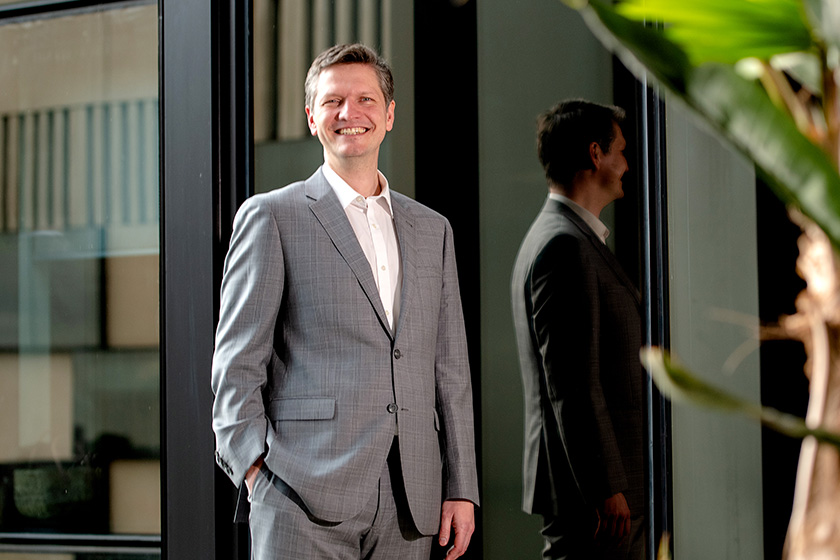 Bendigo Health's first neurology consultant, Dr Roberts Atvars
Bendigo Health's first neurology consultant, Dr Roberts Atvars
In Australia, people living in regional and rural communities are 17 per cent more likely to have a stroke. Last year, Bendigo Health saw 238 stroke presentations to the Emergency Department, along with 338 stroke and transient ischemic attack (TIA) admissions to acute wards and a further 129 stroke cases to inpatient rehabilitation.
In light of this, Bendigo Health’s new neurology consultant, Dr Roberts Atvars, has one message. “A huge proportion of stroke can be avoided. That’s the biggest message.”
Dr Atvars, who completed his training in Melbourne, Launceston and Hobart, is now calling Bendigo home. Officially commencing at Bendigo Health last week, he will be heading up a dedicated neurology service, as well as offering his expertise to patients in a neurology clinic twice weekly at the hospital – the first time such a clinic has been offered in Bendigo.
“As a trainee you’re exposed to a lot of stroke training and management and so I’m excited to come to a place that doesn’t have a stroke neurologist specialist, to find the places where we can improve and implement things that work in metropolitan centres and adapt that to Bendigo,” he said.
“The biggest impact that can be made in reducing stroke in the community is prevention. That’s all about healthy lifestyles, healthy eating, exercise and reducing cigarette smoking, and looking after factors that could cause stroke, such as heart disease, blood pressure problems, diabetes and blood cholesterol levels.
“So it’s also about having a good relationship with a general practitioner. The majority of stroke medicine in Australia is by GPs. It’s GPs who are diagnosing and managing that. When it comes to stroke it’s important to have that relationship and get checked out to see if something is going on,” he said.
With Bendigo Health already offering a range of in-person and telehealth support to stroke patients, Dr Atvars hopes to expand the scope of care provided.
“I’ve been meeting with all the people who are involved in stroke management at the hospital, the GPs, ICU, neurological rehab and our stroke clinical nurse consultant and understanding how well the stroke journey is working for people in Bendigo, what can we do to improve that process and what I can offer,” he said.
Though he is particularly interested in neuroimmunology and Multiple Sclerosis (MS), Dr Atvars is excited to apply his passion for the complexities of the brain to the variety of patients and conditions which will present as the general neurology clinic gets underway.
“A general clinic is often a mix of conditions that affect the brain and nerves. Not only is it stroke and MS, but it can be Parkinson’s, dementia, neuropathies and autoimmune encephalitis. There’ll be quite a lot I can offer in the clinic,” he said.
“Being in a position to help people through what can be a confronting time, to go through that journey with those patients and see the outcomes, to contribute to a field where the treatments are rapidly evolving, will be incredibly rewarding.
“I’m excited to become an addition to the team of clinicians already working in neurological health here and bring in my speciality knowledge,” he said.